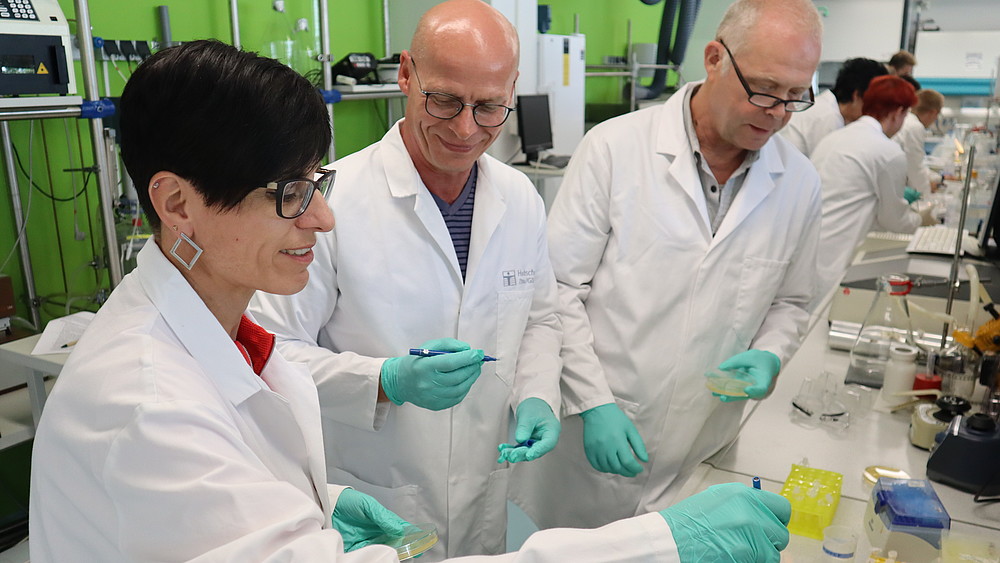Biology teachers from East Saxony visit the microbiology laboratory at the HSZG

"Learning is experience, everything else is just information" postulated Albert Einstein, emphasizing the relevance of practical application, active action and personal experience for successful learning. True to the motto of this important German Nobel Prize winner, 18 biology teachers from secondary schools in eastern Saxony gathered last week in the microbiology laboratory at Zittau/Görlitz University of Applied Sciences.
Their goal? Practical training in the field of modern biology and its application: biotechnology. In recent years in particular, biotechnology with its focus on genetics and genetic technology, including the production of biopharmaceuticals, has gained enormously in importance and therefore offers a large and attractive professional field. Antibiotics, vitamins, insulin, the coronavirus vaccine and antibodies for cancer immunotherapy are just the best-known examples. Due to the exponentially growing density of information in this field and the fascination of all that humans can learn from and with cells, the teacher training was organized by Daniela Jatzwauk, subject advisor for biology at grammar schools in eastern Saxony at the State Office for Schools and Education in Bautzen, and Thomas Wiegert, Professor of Microbiology at the HSZG.
After the welcome at the Zittau/Görlitz University of Applied Sciences at 9 a.m., Robert Viertel introduced the Future Learning Center Oberlausitz (ZukLOS) presented. He answered the question of why not only students, but also Saxon teachers and pupils will have the opportunity in future to further their education in interesting STEM subject areas in cooperation with the HSZG. Once in the laboratory, the teachers were then able to carry out their own experiments on the differentiation of bacterial species, methods for the professional cultivation of microorganisms and the detection of enzyme production and metabolic activity of a biotechnological production strain. They also learned that the saying "tastes are different" is nothing more than our genetics and why Brussels sprouts are not everyone's favorite food.
In addition to the exciting laboratory experiments, interesting questions were of course also put to the university staff and interesting technical discussions were held. At 5 p.m., a communicative, eventful and successful day came to an end and everyone agreed that this would not be the last time they would work together.
In future, the extracurricular educational landscape in Upper Lusatia is to offer even more innovative learning opportunities in the STEM field in order to support young people individually . To this end, new extracurricular learning locations will be identified and gradually established. At the same time, existing STEM educational opportunities are to be further developed in close cooperation with young people to meet their needs. In addition, the economic, technological, social and ecological development opportunities and risks of Upper Lusatia are to be continuously taken into account.
ZukLOS is working on four fields of action:
Detailed information can be found on the ZukLOS website.